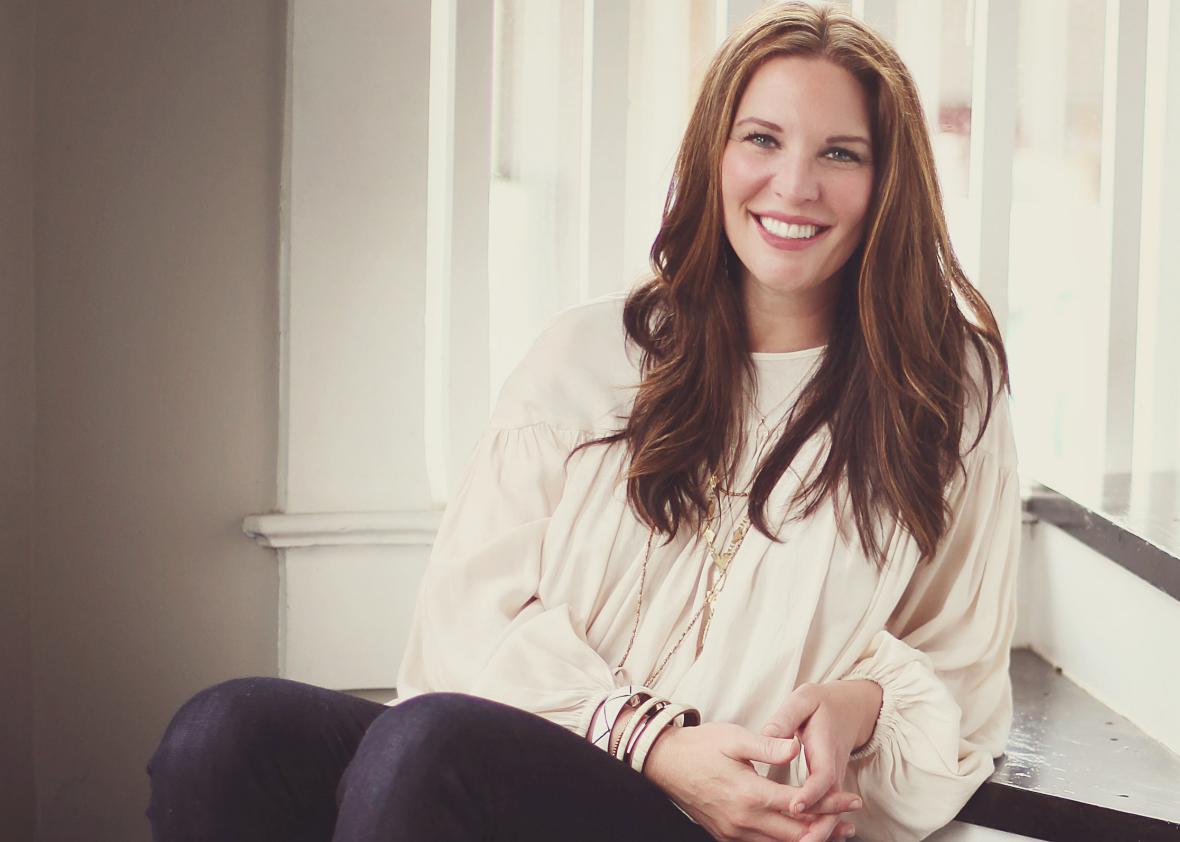At first glance, Jen Hatmaker does not seem like the kind of person whose politics would get her into trouble. Much of her writing focuses on the zany side of life with five children; a blog post that went viral in 2013 was about being the “worst end of school year mom ever.” Her latest book, For the Love, is about “grace in a world of impossible standards.” She starred an HGTV show about renovating her family’s 1908 farmhouse in Austin, for Pete’s sake. Her brand is laid-back positivity and humor, a church-y Erma Bombeck for the Real Simple set.
But Hatmaker is also one of several prominent evangelical women who has been speaking out against Donald Trump recently. And last week, she gave an interview to Religion News Service columnist Jonathan Merritt in which she delved further into her politics—and landed herself in the center of a controversy that is still unfolding. The bombshell: She’s cool with gay relationships. “From a civil rights and civil liberties side and from just a human being side, any two adults have the right to choose who they want to love,” Hatmaker told Merritt. “They should be afforded the same legal protections as any of us.” She went on to point out that every community has gay couples in need of help with marriage, parenting, and spiritual issues. “They are either going to find those resources in the church or they are not,” she said. In response to a later question, she confirmed that she thought LGBTQ relationships can be holy.
The blowback to these seemingly mild statements has been swift. One of the largest Christian retail stores in the country quickly announced it was pulling Hatmaker’s books and Bible studies from its stores. Critics piled on, lambasting the supposed weakness of her argument, which she had expounded on in a Facebook post early this week. “That a prominent Christian author would comment on these issues without ever mentioning Scripture or church history is absurd,” one critic wrote, in a post on how her statement represented everything wrong with “therapeutic” Christianity.
Cultural and theological skirmishes over sexuality issues continue to roil the evangelical world, even as marriage equality has largely dropped off the national political radar in the wake of the Supreme Court’s Obergefell v. Hodges decision last year. Trump’s position on the question is typically incoherent, but he barely speaks about it on the campaign trail. Evan McMullin, the independent candidate beloved by many social conservatives, has said it’s time to “move on” from the marriage fight. But evangelicals are still fighting an internal battle over LGBTQ rights. Young evangelicals are now evenly split on the issue. The last several years have seen several large evangelical churches publicly shifting their stances to become “open and affirming.” A growing number of evangelical theologians, authors, and popular speakers are defending the sacredness of gay relationships.
The intra-evangelical backlash against this shift has been swift and occasionally chaotic. Some religious organizations are crafting new policies to respond to the fact that many people now consider themselves both evangelical and LGBTQ or allies. Last month, a network of evangelical campus ministries with more than 1,000 chapters announced that staff members who came forward to disagree with its opposition to same-sex marriage would be fired. In 2014, the Christian international aid organization World Vision said it had changed its policy and would begin to hire Christians in same-sex marriages. The outrage from constituents and donors was so immediate that it reversed its position just two days later.
In the meantime, evangelical leaders like Hatmaker are in a difficult position—particularly if they are women. Christian author Hannah Anderson pointed out on Twitter on Thursday that evangelical women with public platforms like Hatmaker’s are often rewarded for emphasizing anecdotes and “relatability” over theological rigor. When they speak out on thorny topics, then, they aren’t in a position to be taken seriously. Indeed, Hatmaker’s persona is funny and self-deprecating—more “everyday mom” than exegetical expert. That’s not good enough for gatekeepers offended by her insufficient orthodoxy. But the conversation she’s helping to lead will go on with or without them.
